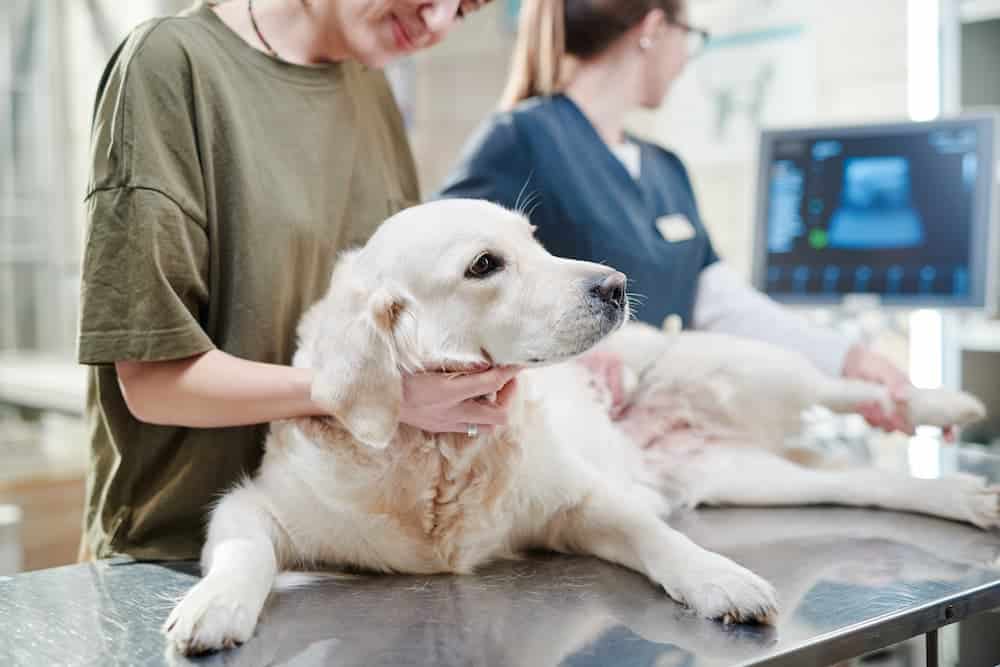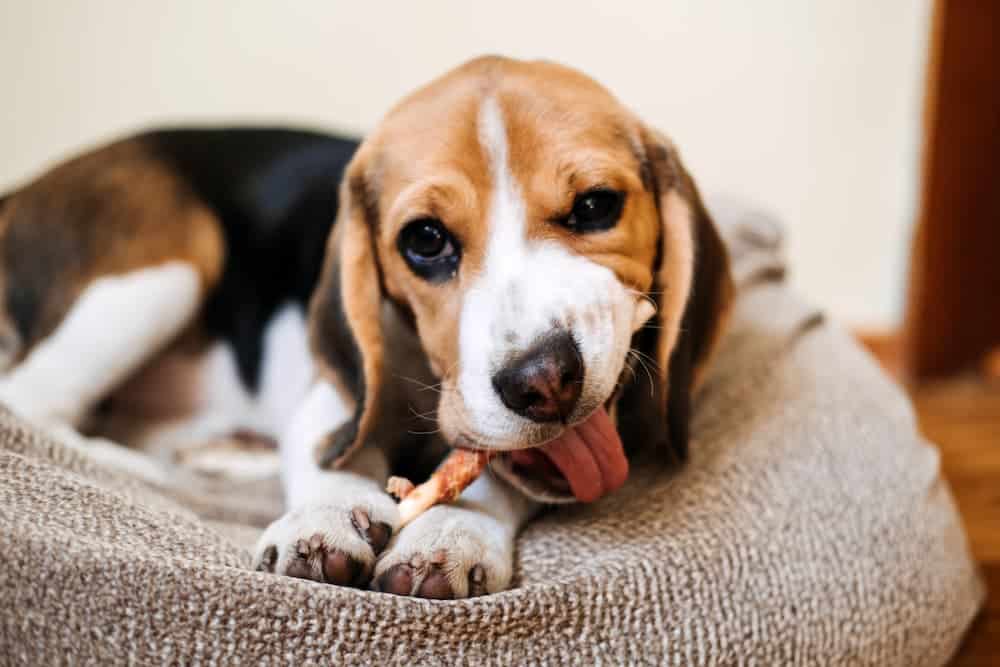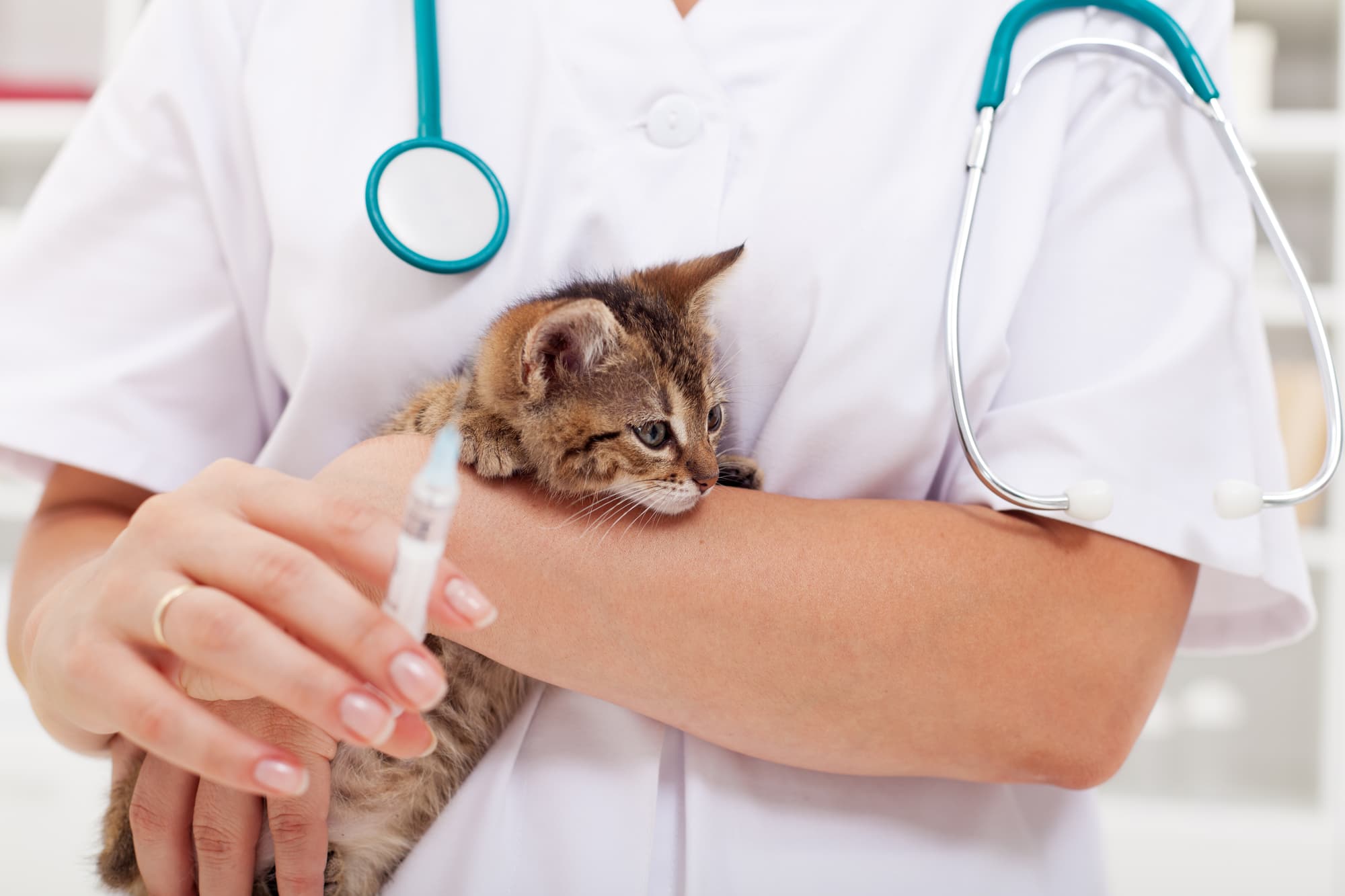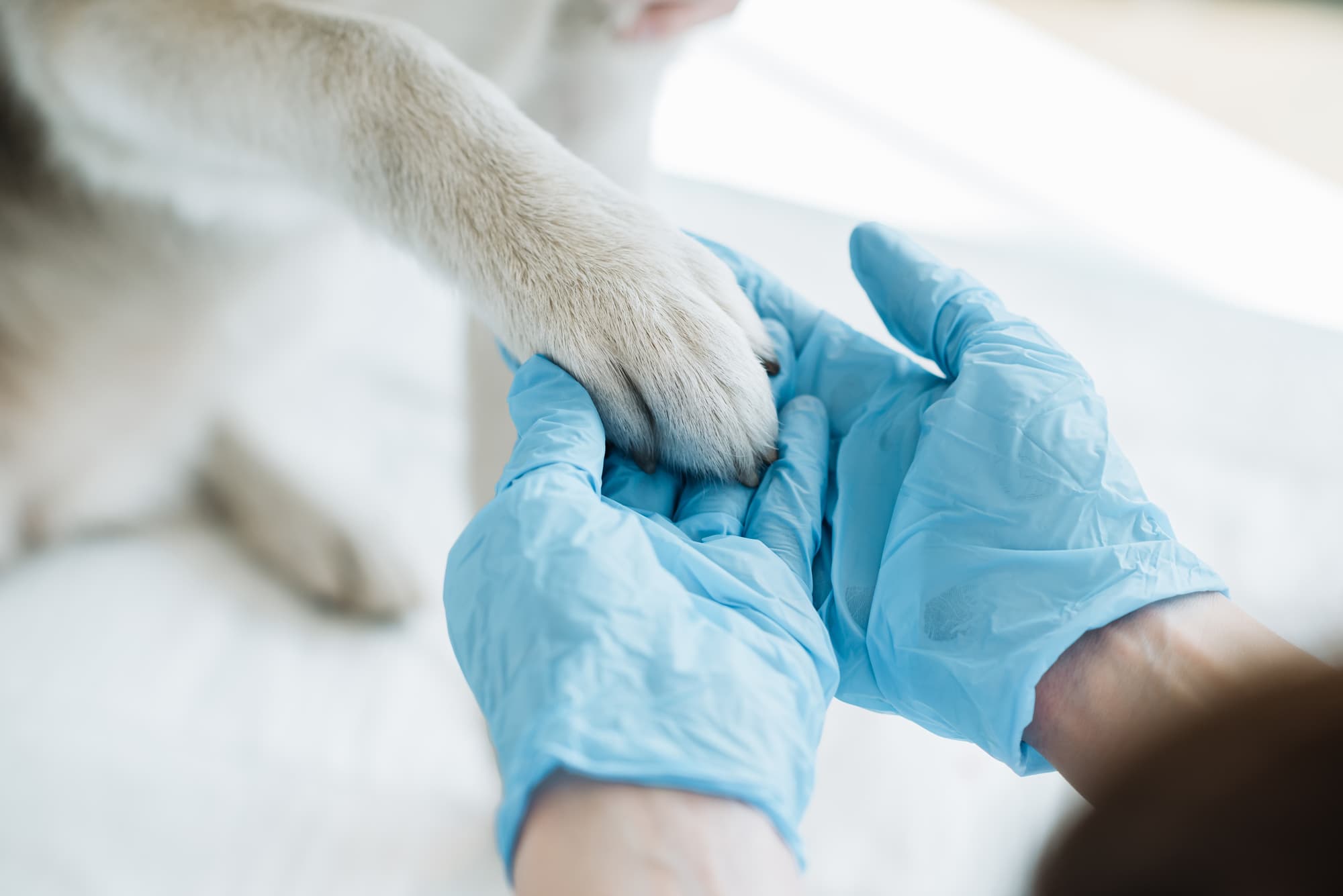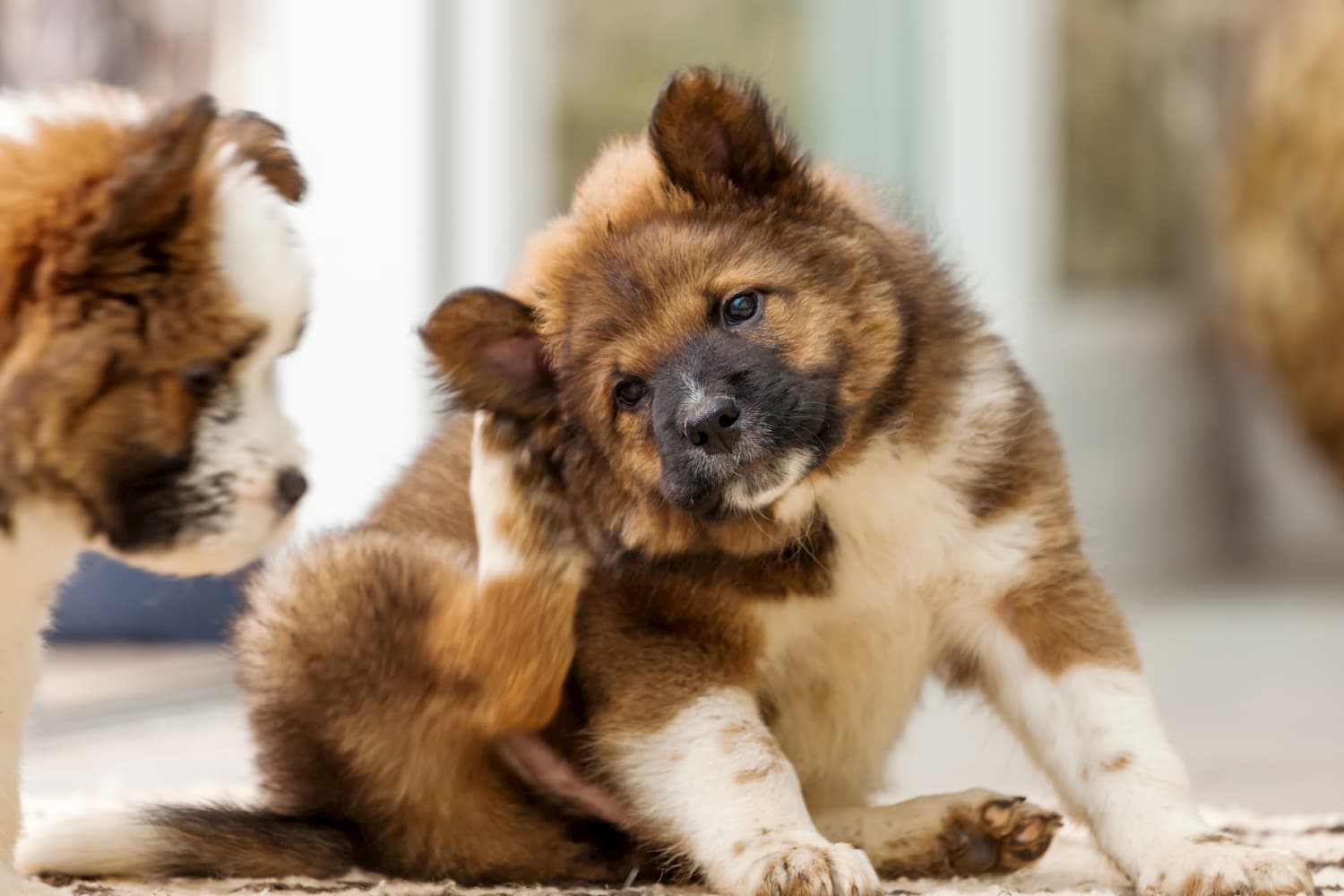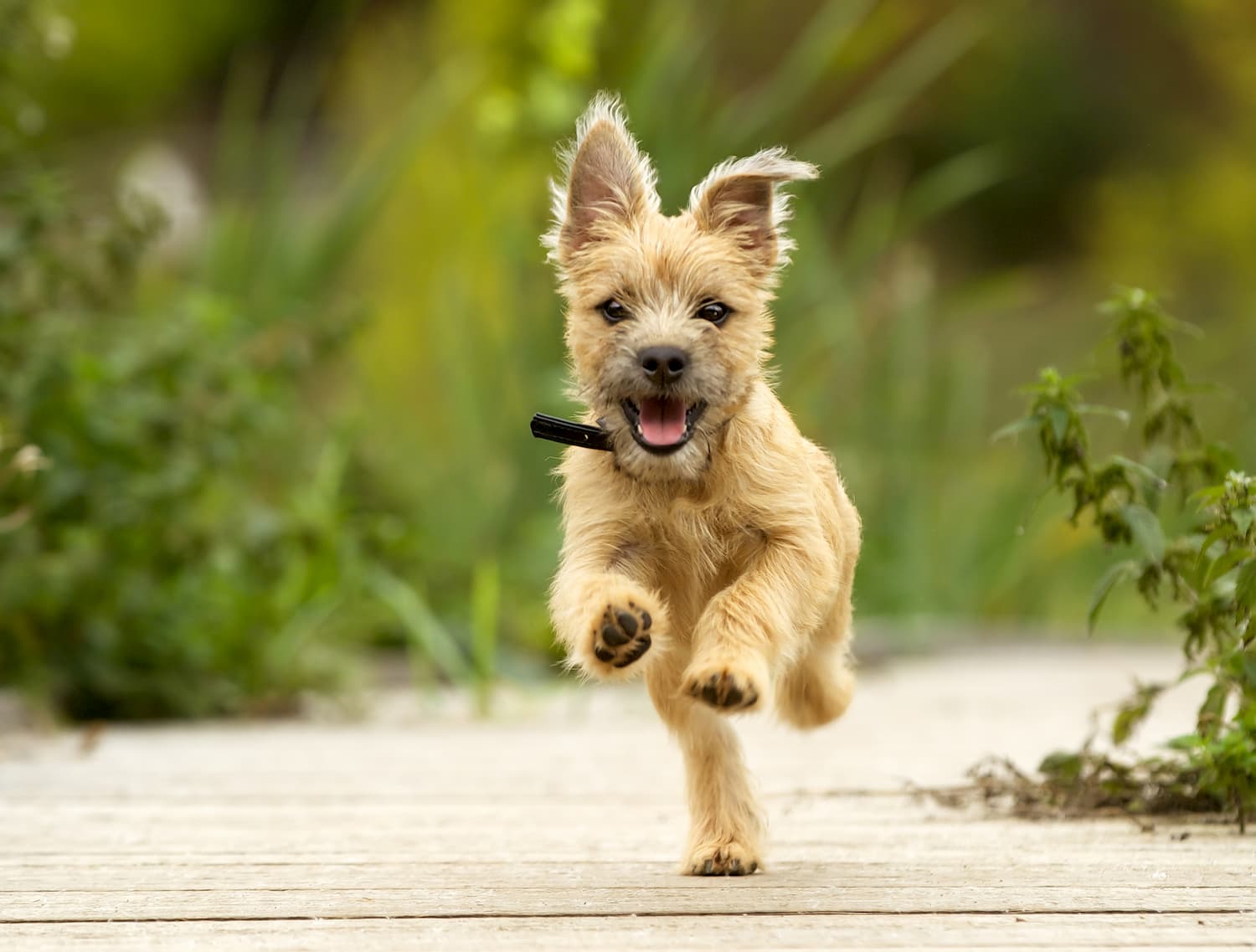Puppies spend their lives playing with and chewing random objects wherever they go. This can be cute and endearing when your puppy is only a few weeks old and has yet to grow teeth. But, like humans, puppies grow each and every day. Anyone who has had a puppy will know that, often, they don’t realise when they’re not a puppy anymore!
That’s why it’s so important to try to curb play biting and mouthing behaviours early on. This way, they won’t continue into adulthood when biting may be more problematic.
Appropriate Socialisation
The first step to instilling appropriate behaviours is socialising your puppy during the first three to 17 weeks of age. This is a key period to instil appropriate behaviours in your puppy, especially in relation to biting or mouthing. This period of a puppy’s life is crucial in establishing behaviours that they will carry into adulthood.
Puppy school provides a positive and safe environment for puppies to socialise and learn how to interact with other puppies and humans. Puppy school is also a great place for you to learn positive reinforcement and how to ensure your puppy is happy and well-adjusted.
Why Do Puppies Bite?
First, it’s important to understand why your puppy might be biting in the first place. Like human babies, puppies explore the world by biting and mouthing things they encounter. The results of this is that, for better or worse, puppies tend to put everything they encounter into their mouths. This can include things like human hands, fingers and toes.
Puppies typically spend their earliest days with the rest of their litter. This means they spend a lot of time playing and roughhousing with their siblings. At this stage, puppies don’t have any teeth so mouthing and biting doesn’t hurt. Even as they do start to grow teeth, a puppy’s thick skin can usually tolerate this kind of play biting.
Inhibit Biting
Play biting is normal puppy behaviour that can become a lot less fun as they get stronger and their adult teeth start to come through. One way to lessen the effects of this is to inhibit your puppy’s biting. This means that, while the behaviour doesn’t completely stop, your puppy should learn to control the strength of their biting.
When a puppy bites another puppy, the puppy being bitten will typically yelp to indicate that it hurt. This yelp then becomes a signal that the puppy understands. By mimicking this behaviour when your puppy bites you, you can teach your puppy when their play biting and mouthing is too much.
If you puppy bites you too hard, just let your hand go limp and imitate the yelping sounds that another puppy being bitten would typically make. Ignore your puppy for about twenty seconds after they release, and then you can keep playing.
One thing to remember is you shouldn’t pull away from your puppy when they bite you. This can alert their chase instinct which will only make the problem worse.
The aim of inhibiting biting behaviours is to teach your puppy that gentle play is okay and can continue, but rough playing needs to stop. Once your puppies stronger biting behaviours are inhibited you can then repeat the same process with more moderate biting behaviours so they will ultimately learn that mouthing toys is okay, but biting is not.
What if Your Puppy Continues Biting People?
Especially for those whose puppies may be around a lot of young children, it may be useful to teach your puppy that they should not be mouthing or biting human skin at all.
The first step to doing this is, if your puppy attempts to bite or mouth any part of your skin or anyone else’s, simply give them a toy or a chew bone instead. If your puppy tends to start biting or getting riled up when you pet them, as many puppies do, you can also try distracting them by feeding them or giving them toys to play with in your other hand. This means that they will get used to being touched or patted without reflexively biting people.
Many puppies also become very interested in biting or nipping at people’s ankles, which can be quite annoying when trying to train them. To stop this kind of behaviour, ensure you carry around you puppy’s favourite toy when going for walks, and if they nip at your ankles, stop for a moment and then distract them with their favourite toy.
If you’re worried about any of your puppy’s behaviours and none of the techniques we’ve suggested above seem to help, you’re more than welcome to visit us:
- Book an appointment online
- Call us on (03) 9482 1913 to request a behaviour consultation
- Pop in and visit us at 339 High St, Northcote, 3070

